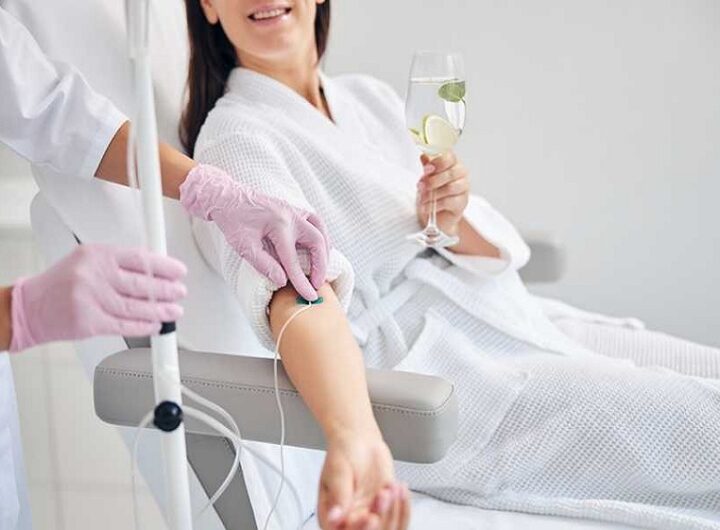
Sustainable trust doesn’t live in advertising supplement slogans or Instagram campaigns—it’s built in the hidden mechanics of manufacturing. That’s the battlefield where reputations are made or destroyed. In supplements, one sloppy step doesn’t just trigger a recall; it can jeopardize consumer health and erase years of brand equity in an afternoon.
And here’s the truth: quality assurance isn’t a box to tick in this industry—it’s the backbone of survival. For consumers, it’s the difference between safe nutrition and dangerous guesswork. For investors, it’s the line between sustainable growth and public backlash. The brands that will endure are the ones that weaponize QA—not as compliance, but as consumer protection.
1. Verifying Identity and Potency
Let’s be blunt: “close enough” is never good enough when people’s health is on the line. The label on a bottle is more than ink—it’s a contract with the customer. Break it, and you’re not just refunding a sale; you’re putting consumer trust, safety, and brand survival on the chopping block.
That is where supplement testing goes beyond the label—it confirms that what’s promised is what’s delivered.
- Ingredient integrity: If you claim ginseng, it must be ginseng—not fillers, not counterfeits. Consumers count on authenticity, and one fake destroys more than a batch—it destroys belief.
- Dosage precision: Labels aren’t decoration; they’re promises. If a consumer buys 500 mg, they expect 500 mg—every capsule, every time. Anything less isn’t just misleading; it’s betrayal.
- Science as proof: High-Performance Liquid Chromatography (HPLC) doesn’t guess—it verifies. It separates and quantifies ingredients with surgical accuracy.
For consumers, this precision means reliability. For businesses, it means predictability. And predictability compounds into trust—the kind of trust that keeps people coming back.
2. Protecting Against Contaminants
Here’s where many brands implode: they chase growth but ignore the hidden threats. Contaminants don’t knock politely—they infiltrate silently, through soil, handling, or careless facilities. And when they end up in a capsule, they don’t just taint a batch—they put consumers at risk and stain the brand name permanently.
- Microbial defense: Every lot must be tested. Bacteria, mold, and yeast don’t care about branding—they care about slipping past lazy protocols.
- Metal detection: Inductively Coupled Plasma (ICP) flags toxic heavy metals—arsenic, mercury, lead—before they reach the consumer’s body.
- Fortress-like facilities: Controlled environments that suffocate contamination before it has a chance to exist.
That isn’t about FDA checkmarks—it’s about defending the consumer. Because a single contamination failure isn’t just a business problem—it’s a public health event.
3.Ensuring Performance
The right ingredients mean nothing if they don’t actually work inside the human body. A pill that doesn’t dissolve, or a formula that breaks down too quickly, isn’t just ineffective—it’s deception. Consumers don’t forgive deception.
Critical performance consistencies include;
- Bioavailability focus: Dissolution and absorption tests simulate the human body, proving nutrients get to where they’re needed.
- Stability assurance: Heat, time, and humidity destroy weak formulas. Real QA ensures products hold their strength through the entire shelf life.
- Consistency of experience: Every scoop, capsule, or softgel must feel the same and deliver the same outcome—batch after batch.
Performance isn’t just science—it’s respect for the consumer’s trust. And the brands that prove consistency win loyalty that marketing money can’t buy
4. Rapid Material Identification
Factories move fast. But speed without accuracy is chaos—and chaos kills trust. One mislabeled raw material can mean recalls, lawsuits, or worse: unsafe products in the hands of consumers. Leaders know rapid verification isn’t a luxury—it’s the shield that protects the people who buy their products.
- FT-NIR tech: Fourier Transform Near-Infrared Spectroscopy instantly scans the chemical “fingerprint” of raw materials.
- On-the-floor efficiency: Materials verified in real time, before they ever touch the production line.
- Supply chain protection: Eliminating mix-ups before they cascade downstream to the consumer.
For businesses, it’s operational maturity. For consumers, it’s invisible armor.
In conclusion, quality assurance in supplements isn’t paperwork—it’s protection. It’s the philosophy that separates the fragile from the unshakable, the reckless from the responsible. For businesses, QA is strategy, foresight, and competitive advantage. But for consumers, it’s something even more powerful: peace of mind.
The companies that will lead this industry aren’t the ones scraping by with “good enough.” They’re the ones setting standards, making consumer trust their sharpest weapon. Because in a market where credibility is currency, and every capsule touches someone’s health, quality assurance isn’t just science—it’s protection made visible

 Top Myths About Pediatric Home Health Care Debunked
Top Myths About Pediatric Home Health Care Debunked  Immunity IV Drips – Your Frontline Defense Against Modern-Day Fatigue, Illness, and Burnout
Immunity IV Drips – Your Frontline Defense Against Modern-Day Fatigue, Illness, and Burnout  Is Vasectomy Painful? What Men Should Know about the Procedure
Is Vasectomy Painful? What Men Should Know about the Procedure  Low Blood Oxygen? These 5 Shocking Causes Might Be Putting You at Risk!
Low Blood Oxygen? These 5 Shocking Causes Might Be Putting You at Risk!  Cardiologists And The Approach To Pediatric Heart Conditions
Cardiologists And The Approach To Pediatric Heart Conditions  Lifestyle And Fertility: An Infertility Specialist’s Advice On What You Can Control
Lifestyle And Fertility: An Infertility Specialist’s Advice On What You Can Control  From Lab to Lifestyle: How the Science of Quality Assurance in Manufacturing Reliable Supplements Protects Consumers and Businesses
From Lab to Lifestyle: How the Science of Quality Assurance in Manufacturing Reliable Supplements Protects Consumers and Businesses  The Best Practices For Maintaining Healthy Gums In Willow brook
The Best Practices For Maintaining Healthy Gums In Willow brook